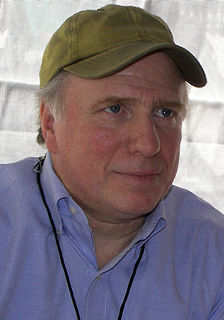A Quote by David Sedaris
Humor is necessary - it allows the reader to come up for air before dunking them under again. I need humor and I need it on the page to keep the reader going.
Related Quotes
In terms of whether I use humor to allow me or my readers to come up for air, I don't think I put that much thought into it. I hate to say it, but I first have to entertain myself before I can think about the reader. I know that's kind of weird and selfish, but I write because it's fun, not because I need to put bread on the table.
It's good for a writer to come from journalism because it gives you the tools. A journalist knows that he or she can lose the reader in six lines, so try to keep the attention of the reader. Also, you learn to research, and to conduct an interview - to extract from the person whatever you need from that person.
The first rule is you have to create a reality that makes the reader want to come back and see what happens next. The way I tried to do it, I'd create characters that the reader could instantly recognize, and hopefully bond with, and put them through situations that keep the reader on the edge of their seat.
You need to give the reader a reason to turn the page. In a diary, you are just yourself. You aren't trying to entertain. You aren't trying to get anyone to turn the page. I have over one hundred and fifty six volumes of my diary and I guarantee you that if you read them, you'd stop and never come back.
In my couple of books, including Going Clear, the book about Scientology, I thought it seemed appropriate at the end of the book to help the reader frame things. Because we've gone through the history, and there's likely conflictual feelings in the reader's mind. The reader may not agree with me, but I don't try to influence the reader's judgment. I know everybody who picks this book up already has a decided opinion. But my goal is to open the reader's mind a little bit to alternative narratives.
Nice writing isn't enough. It isn't enough to have smooth and pretty language. You have to surprise the reader frequently, you can't just be nice all the time. Provoke the reader. Astonish the reader. Writing that has no surprises is as bland as oatmeal. Surprise the reader with the unexpected verb or adjective. Use one startling adjective per page.





































